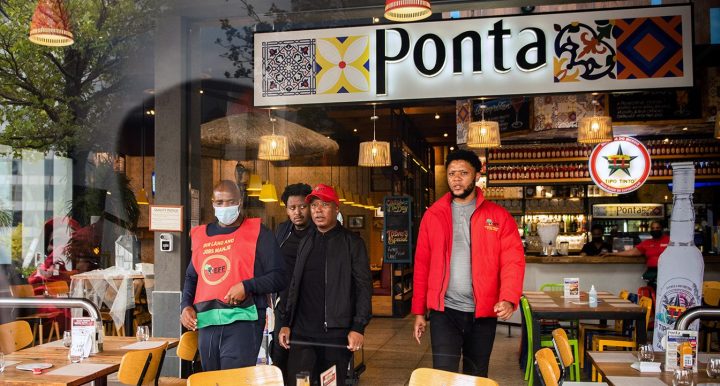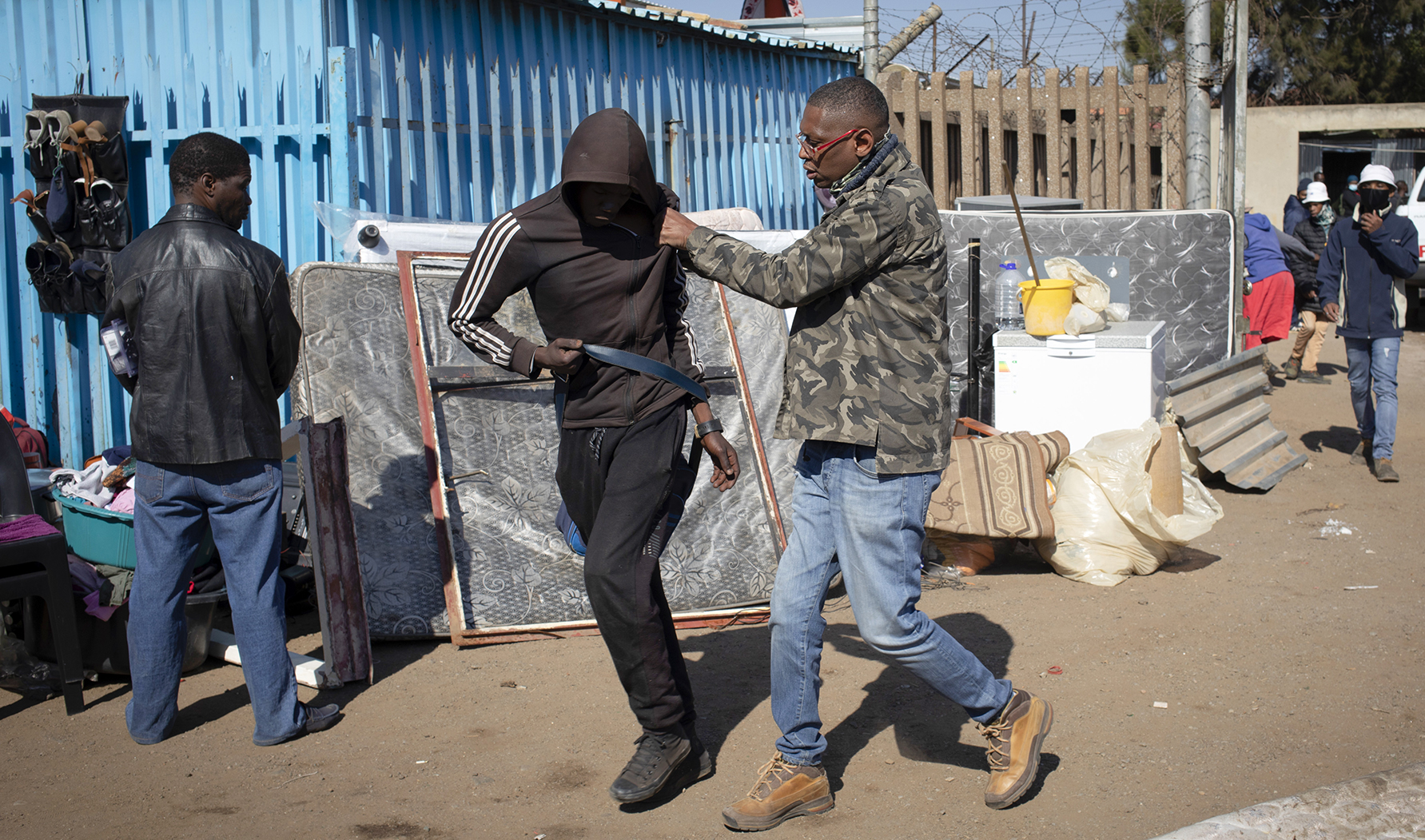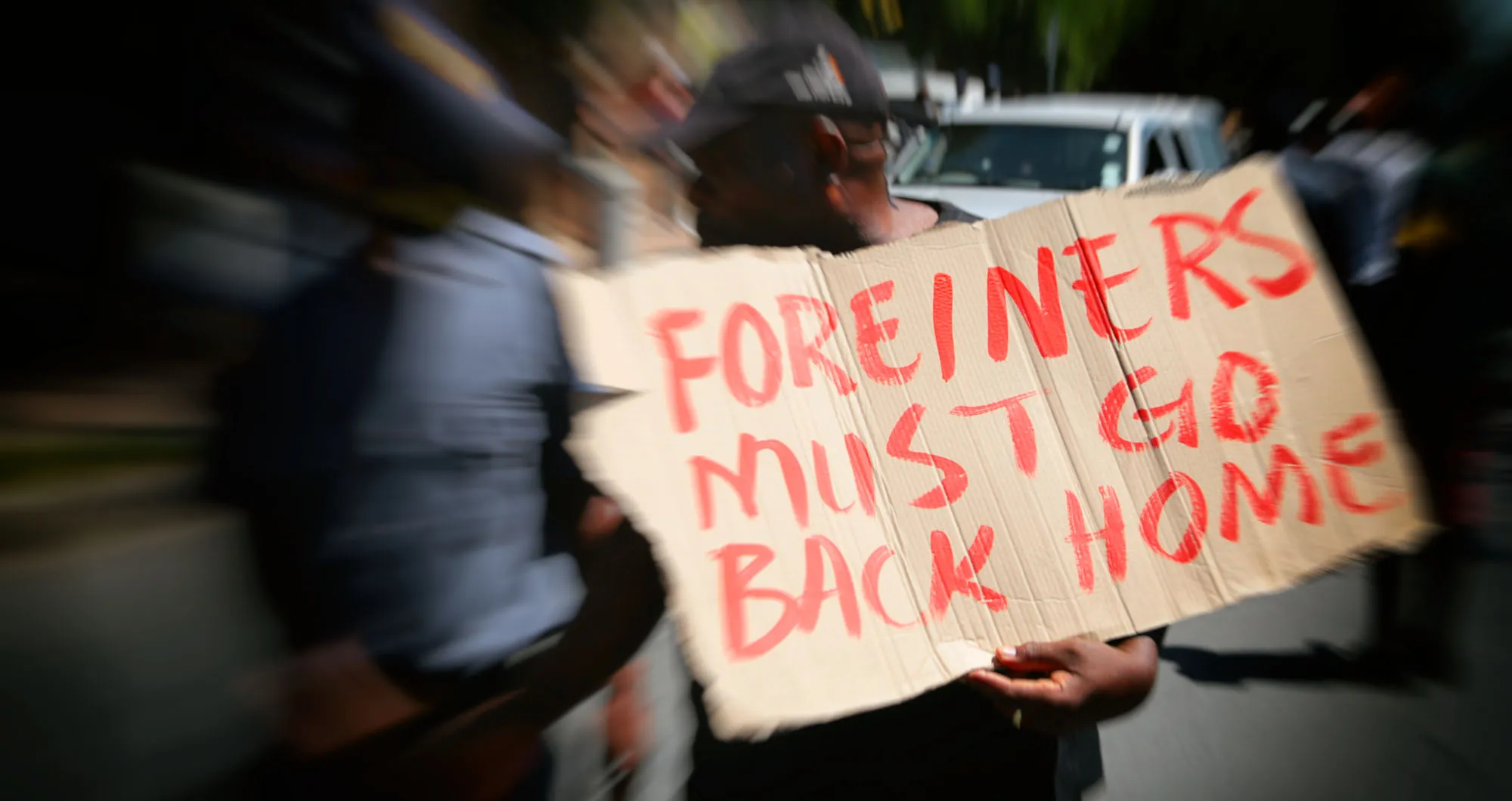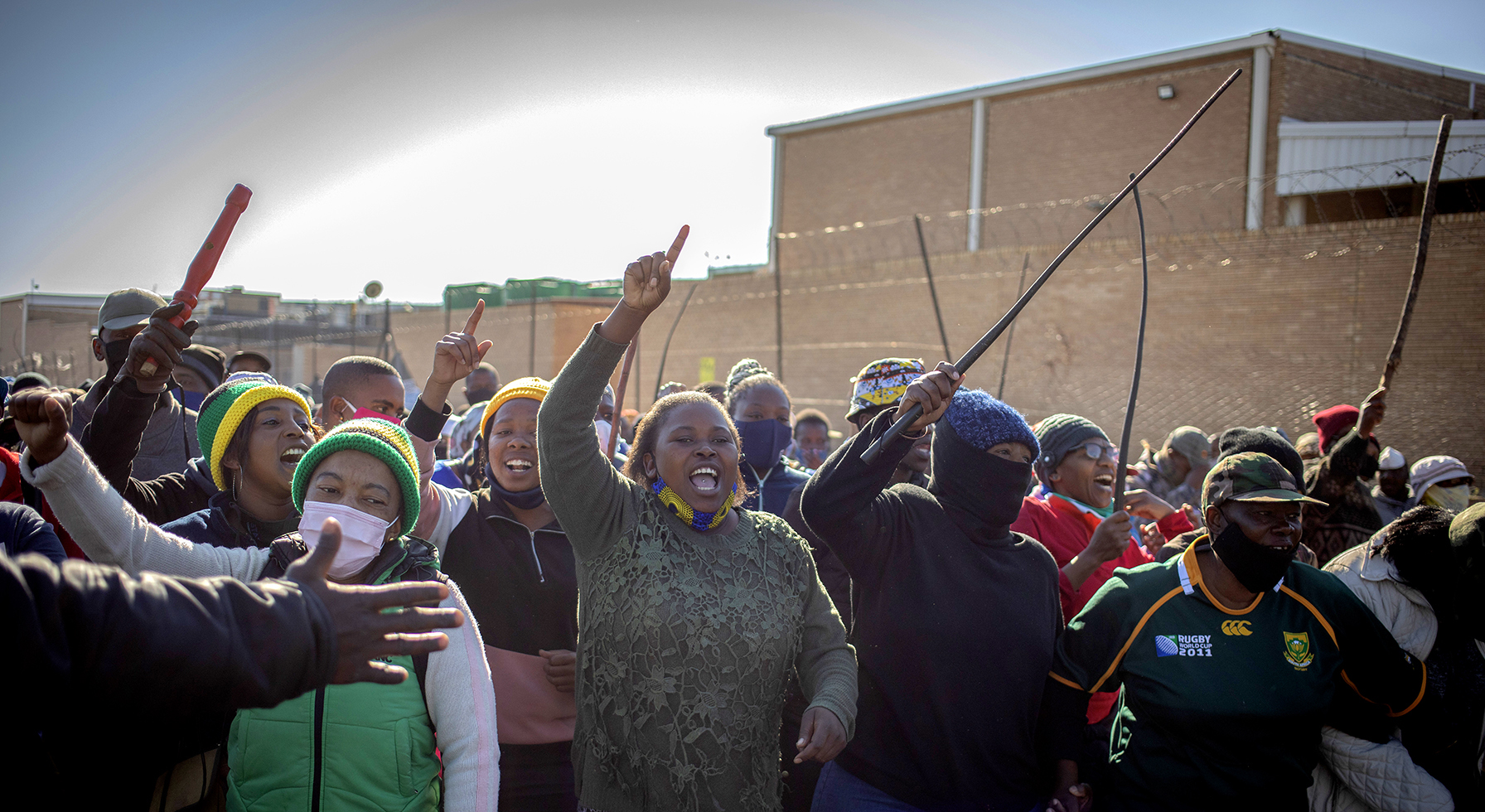HUMAN RIGHTS DAY OP-ED
SA politicians stoke the flames of xenophobia in macabre spectacle to woo back voters

In a macabre spectacle, South Africa’s political parties are competing to be in sync with anti-migrant views, encouraging xenophobia in an attempt to woo back voters after being snubbed in last year’s local government elections.
In the months before South Africa was freed from the ugliest effects of apartheid’s yoke in 1994, more than 14,000 deaths and 22,000 injuries took place, many of them due to apartheid state-sponsored violence. While that peace has held for the most part, violent conflagrations erupt occasionally, threatening the tenuous peace holding the country together.
That “peace dividend” ushered in by the black-led ANC government has significantly reduced gaping inequalities.
Yet the onslaught of the Covid-19 pandemic has significantly erased those gains. Depending on how you define it, unemployment is at more than 40%, with more than 60% of youth unemployed. Before the pandemic the bottom 60% of households in South Africa depended on welfare grants to sustain themselves. Debates are calling for a small Covid-19 relief grant paid out to most South Africans to be made permanent, in the form of a basic income grant. The number of South Africa’s welfare recipients has grown sixfold since 1998.
Whichever way you look at it, South Africa’s economy is not working – at least not for most of its people.

People accused of being “undocumented immigrants” are evicted during a march through the streets of Soweto, South Africa, on 16 June 2021. (Photo: EPA-EFE / Kim Ludbrook)
Fertile ground
It is into this quagmire that political parties, smarting from their various failures to appeal to the electorate (nearly half of whom stayed away from last year’s local government elections), have repackaged an old theme: xenophobia. This time the ground appears even more fertile for this message than ever before.
An authoritative survey conducted over the years 2015 to 2018 by the Human Sciences Research Council, a government-funded research agency, interviewing a nationally representative sample, found worrying trends. In a peer-reviewed report documenting those trends, Professor Steve Gordon and others, as well as co-authors, noted that a tenth of the South African adult population had participated in anti-immigrant hate crime in 2018.
More recently a survey conducted in 2020 to examine how attitudes towards migrants had changed during the Covid-19 pandemic, using a similarly representative population sample, shows that the trends have become even more concerning. Of the South Africans interviewed:
- 60% agreed that immigrants take jobs away from South Africans;
- 65% believe that immigrants increase crime rates; and
- 55% believe immigrants bring disease to South Africa.
In a macabre spectacle, South Africa’s political parties are competing to be in sync with these views, encouraged by the rise of Action SA, a new party making its mark in last year’s elections whose popularity is widely perceived to be predicated on its anti-migrant message.

A group of disgruntled Alexandra, Johannesburg residents during a campaign to remove so-called foreign street vendors from pavements and stalls on 13 February 2022. (Photo: Felix Dlangamandla / Daily Maverick)
Scrapping permits
Late last year the ANC, whose popularity fell below 50% for the first time since 1994, rushed to scrap a special permit for Zimbabweans in order to reduce the substantial number of migrants from that country living in South Africa. Many of them came to their neighbouring country from 2008 to 2009 seeking asylum following the collapse of Zimbabwe’s economy.
The EFF has made a show of arriving unannounced at small businesses’ premises and demanding to be told how many foreigners are employed there. Foreigners selling goods to survive are being swept out of market stalls in a plaza. The IFP has sponsored a bill to introduce quotas for foreigners in all industries. Reports are emerging of migrants being hounded out of their houses and asked to show their documents to mobs, only to be taken away unlawfully for deportation.
As the civil unrest and looting of July 2021 show us, South African law enforcement is far too poorly equipped to respond to such events, which have the potential for rapid escalation. There is also concern that the South African police are complicit in the violence against migrants, harassing traders, searching unlawfully and arresting migrants linked to raids to hunt down criminals, perpetuating the prejudice that migrants are criminals.
It is also tempting to see the rise in xenophobic attitudes as a conjoining of South Africa’s body politic with growing anti-migrant feelings across the world.

Residents brandish their weapons during a march against so-called “undocumented immigrants” in Soweto, South Africa, on 16 June 2021. (Photo: EPA-EFE / Kim Ludbrook)
Read the smoke signals
Another interpretation comes from the frontlines of protest in South Africa. Prof Karl von Holdt of Wits University and academic and author Jacob Dlamini, writing about another “violent” community protest which turned xenophobic, described how violence is often the only way in which poor communities in South Africa generate a response from the country’s ineffective state. How, in this sense, “the thick black smoke which billows over the township is the ‘smoke that calls’”.
“Operation Dudula” appears to have grown out of the violence that erupted in July 2021. It is focused on ridding South Africa of all “undocumented foreign nationals” – a euphemism for black African human beings in South Africa.
As the country marks Human Rights Day on 21 March, which is also the anniversary of the Sharpeville Massacre of 1960, this xenophobic violence is a stark reminder of how far South Africa has moved from the vision and founding sentiments inspired by pan-Africanist ideals and the active support of Africans across the continent for its liberation struggle.
South Africa’s political class is fuelling the fire instead of responding to the smoke. It must cease to do so, before it is too late. These fires, once started, have a tendency to consume us. DM/MC
Sharon S Ekambaram is head of the Refugee and Migrant Rights Programme at Lawyers for Human Rights. Phumi Mtetwa is the regional director for Just Associates/JASS Southern Africa. Nomzamo Zondo is the executive director of the Socio-Economic Rights Institute.


















 Become an Insider
Become an Insider
I must take issue with the claim that the benefits of the post apartheid “peace dividend” were “significantly erased” by Covid. This is simply not accurate. This “peace dividend erasure” was well entrenched and growing exponentially long before Covid was even heard of. It is vital to acknowledge this reality.
If we cannot recognise and agree to cause then we cannot deal with effect
Take any situation where there is dysfunction and societal breakdown and you can be sure that politicians are involved. This is a global reality. This is the reality that we must deal with locally if we are going to overcome 30 years of misrule.
We are victims of bad politics and bad politicians. Past and, more importantly, present
Government is not in control.
Money has taken over the ideals of the original struggle and of building a non racial society.The Nats used “die swart gevaar”The politicians of today use the illegal undocumented foreigners (human beings and fellow africans).The ideals of the freedom charter is forgotten as a ANC elite has established itself,and it’s mainly about money and power.Centralised power is the aim.Politicians have never solved problems,and probably never will.It is ordinary south africans ,of every race creed and religion that will have to traverse the pitfalls created by populist politicians and leaders with agendas.Take the fat salaries away of politicians and they will go look elsewhere for bucks.International leaders make deals to their own benefit and the electorate get pulled along like sheep.What comes out the mouth of politicians and what the real truth is is two totally different things.
A timely piece and warning. I’m disturbed by this because it contradicts the valid outcry against the racism directed at Africans fleeing Ukraine. We’re outraged at European racism – a form of xenophobia – but we simultaneously indulge xenophobia at home. This raises the question: Do we, as South Africans, embrace Africans or do we not? And in particular, do political parties like Action SA and EFF embrace Africans or do they not?